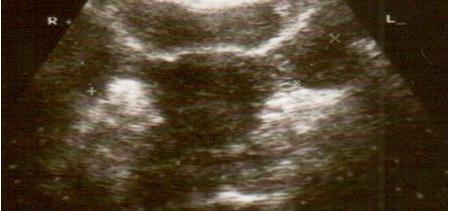
Although it can take a few years for a woman's periods to settle down into a regular pattern after they begin, irregular periods are reasonably common among women whose menstrual cycles are more wellestablished. Some of the most frequent menstrual irregularities include absent or infrequent periods, heavy or prolonged bleeding, unusually painful periods and spotting. If you notice any of these symptoms or any other changes in your menstrual cycle that cause you concern, it is wise to discuss your symptoms with an experienced gynaecologist, as a range of factors can affect your periods. This way you can get an accurate diagnosis and start any necessary treatment to ease your symptoms and restore your usual menstrual cycle.
Although a certain amount of variation between your periods is normal, you should consider seeing a gynaecologist if any of the following situations are applicable:
- Your periods have not started by the time you are 16
- You have not had a period for 3 months and tests show that you are not pregnant
- Your menstrual cycle variation exceeds 20 days
- Your periods occur at intervals of greater than 35 days
- You bleed heavily or your periods last for more than 8 days
- You suffer from severe menstrual cramping
- You bleed in between your periods
- Your cycle lasts less than 21 days or you bleed for less than 2 days during a period
As there are various reasons for changes in your periods, a gynaecologist needs to take a detailed history of your symptoms and consider this alongside the results of tests to correctly diagnose your menstrual irregularities. For instance, if your periods are absent, occur infrequently or they are irregular, this can signal a problem with your thyroid gland, polycystic ovarian syndrome, poorly controlled diabetes or an eating disorder. Alternatively, uterine fibroids or polyps, an underactive thyroid or a bleeding disorder may make your periods heavier or more prolonged. Meanwhile, endometriosis or a chronic infection within your uterus may cause more painful periods. Finally, menstrual spotting may occur when you first start using the contraceptive pill, patch or implant, or an intrauterine system, or due to a sexually transmitted infection or polyps; rarely, this may also be a sign of cervical or uterine cancer. However, it is also possible that lifestyle factors, such as stress and over exercising, as well as certain medications may also interfere with your menstrual cycle.
Besides assessing your medical history, your gynaecologist may also arrange the following tests to aid their diagnosis:
- Blood tests to check your levels of sex hormones, as well as any others that they feel are appropriate such as thyroid hormones, prolactin, blood glucose or clotting factors
- An ultrasound scan to check your cervix, uterus, fallopian tubes and ovaries for signs of growths such as polyps, fibroids or cysts
- An endometrial biopsy to examine a sample of your uterus lining under the microscope
- A Hysteroscopy to look at the inside of your uterus in more detail
Although managing the underlying cause of your menstrual irregularities will help to resolve the problems you have with your periods, other treatments are also available. For example, if you do not have periods, they rarely occur or you have them irregularly, oral contraceptives may help. Similarly, with heavy or prolonged periods an intrauterine system that releases progestogen or medications that containprogestogen or tranexamic acid are treatment options. Meanwhile, if anti-inflammatories or heating pads fail to offer relief from painful periods, certain regimes of hormonal contraceptive can lessen menstrual cramping. Equally, if your current contraception is causing spotting, changing your birth control method can provide relief from this problem.
It is essential that you consult with an experienced gynaecologist, as the complexities of menstrual irregularities means that it is often difficult for a general practitioner to accurately diagnose the cause of your problems or advice on the most suitable treatment. A gynaecologist is able to use their experience to tailor the treatment plan to your needs and adjust it accordingly. Dr Sheela Purkayastha is highly knowledgeable and skilled in diagnosing and treating menstrual disturbances. If you would like to consult with her to discuss your problem periods, call to make an appointment today.
![]() Privacy Policy | Disclaimer | Links | Sitemap | View Mobile Website
Privacy Policy | Disclaimer | Links | Sitemap | View Mobile Website
The contents on this site is for information only, and is not meant to substitute the advice of your own physician or other medical professional.